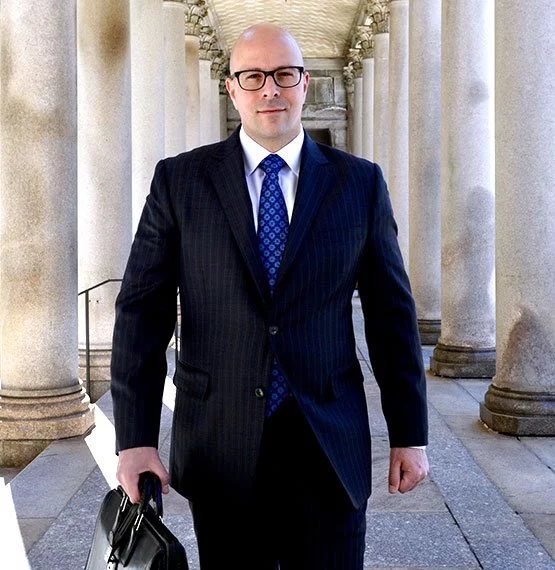Contents
What is a grand jury hearing?
Grand jury hearing or proceedings are conducted to determine if probable cause exists to believe to an individual committed a criminal offense.
How is the grand jury selected?
A grand jury is comprised of a large number of persons randomly selected from the community, normally 26, to review the prosecutions’ evidence in a particular case.
The jurors meet with the prosecutor in secrecy to listen to testimony and review evidence the prosecutor wants the grand jury to consider in the course of what is called a grand jury investigation.
There is no judge in the grand jury, only the jurors, prosecutor and witnesses. Individuals who are the focus of the investigation are known as targets or suspects of the investigation and are also not present.
Grand jury investigation
During the grand jury investigation, the prosecutor calls certain witnesses to testify regarding their knowledge of the matters under investigation.
Defense lawyers are not present for their testimony and therefore, the witnesses are not subject to cross-examination as they are at trial.
Rules of evidence
Rules of evidence, which apply at trial do not apply to grand juries.
The jurors may also ask questions of the witnesses at the conclusion of their testimony. The jurors may also issue subpoenas to certain witnesses to testify before them or to compel the production of other evidence they wish to examine in the course of their investigation and probable cause determination.
Conclusion of evidence
Upon the conclusion of evidence, the jurors are asked to vote by majority whether probable cause exists to believe the target of the investigation committed the suspected offense or offenses.
If a majority of the jurors vote for no probable cause, the investigation is over with what is called a “no true bill” or no finding to warrant a criminal prosecution. If alternatively a majority of the jurors vote for probable cause, the investigation is over with what is called a “true bill” and issuance of an indictment against a defendant or number of defendants to initiate a criminal prosecution.
Jurisdictions
Vary on how and when grand jury hearings are conducted. In the federal system, the law requires that a grand jury is convened in each and every case where the government seeks to initiate a felony prosecution.
Grand jury waive presentation
A defendant may waive presentation of his or her case before a grand jury and under certain circumstances, there are tactical reasons for doing so.
Absent a waiver, however, a case must be presented before a federal grand jury in order for an indictment to issue.
The states vary on grand jury practice. For instance, in Massachusetts, the grand jury is used to obtain an indictment on all Superior Court felony offenses.
Alternatively, in Rhode Island, felony charges may issue absent a grand jury indictment. Rhode Island grand juries are mainly convened solely before indictments are issued on capital offenses, meaning those punishable by up to life in jail.
States also vary on whether a suspect or target of grand jury investigation has a right to appear or testify before the jurors. There is no such right in the federal system, or in Rhode Island and Massachusetts. However, in other states such as New York, this right to testify before the grand jury is afforded under the state constitution.
What to do if you are the focus of a grand jury investigation
If you believe you are the focus of a grand jury investigation, or alternatively, have received a summons to appear before a grand jury, you need legal representation now.
Witnesses who appear before a grand jury are provided with an oath before being asked for their testimony. Answers to these questions may expose you to potential criminal liability and prosecution. Failure to answer the grand jury questions truthfully may have these same adverse result. Before speaking with prosecutors, law enforcement agents or responding to a grand jury subpoena, you should consult with experience legal counsel to learn about your rights, duties and obligations under the law in connection with grand jury investigation, and most importantly, the protect you from any potential exposure to prosecution.
Grand jury case results
Attorney under grand jury investigation for campaign finance violations: No criminal charges
An attorney came under investigation for his role in a state-wide election. When the democratic incumbent’s opponent lost the republican primary, she endorsed him. This endorsement was documented with a mailer, which was scrutinized by the board of elections after the republican party cried foul and alleged violations of campaign finance laws. Because campaign finance laws were violated, a grand jury was convened. The attorney, who served as a consultant with the democratic incumbent’s campaign and played a role in the distribution of the mailer, fell within the scope of the investigation. He retained Rhode Island Criminal Defense Lawyer, John L. Calcagni III, to assist him during the investigation and ultimately, in preparation to testify, under subpoena and without immunity, before the grand jury. Based on Attorney Calcagni’s efforts and advice, his client was not indicted or otherwise criminally charged for his role and actions during the campaign.
If you believe you are the focus of a grand jury investigation, or if you have received notice to appear before, produce materials to or testify for a grand jury, contact the grand jury attorneys at the Law Office of John L. Calcagni III email or call today at (401) 351-5100 to schedule a free consultation.

